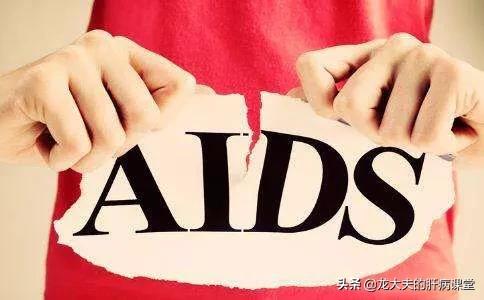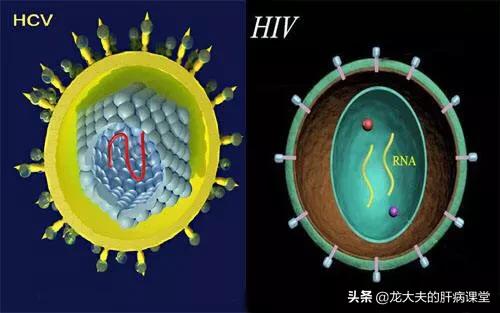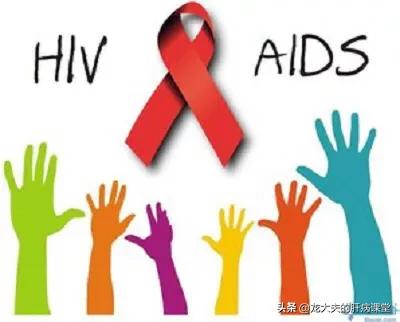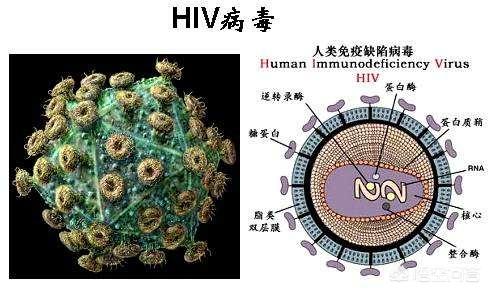Why isn't HIV fatal in the short term?
HIV is an acronym for Human Immunodeficiency Virus, which is translated into Chinese as "HIV" based on a combination of phonetic and ideographic translations. The disease caused by HIV infection is called acquired immunodeficiency syndrome.

HIV infection is not fatal in the short term as it does not quickly destroy the body's tissues and organs, causing death due to dysfunction of vital organs.
Illnesses that would be fatal for a short period of time are most likely to have compromised the function of vital organs, such as cardiac insufficiency, respiratory failure, liver failure, hemorrhagic shock due to massive blood loss, infectious shock, central nervous system infections and hemorrhages, severe trauma, myocardial infarction, anaphylactic shock, and other critical illnesses.
AIDS is a chronic disease, like ordinary hypertension, diabetes, chronic hepatitis B.It is possible to survive for a long time and have a good quality of life if it is well controlled and does not cause functional damage to vital organs.

A lot of garbled news and information on the internet about AIDS patients being skinny and bony and covered in rotting sores, and descriptions or pictures of very gruesome deaths are exceptions to the rule. Just like trauma, there can be minor injuries or serious injuries.
With the vast majority of chronic illnesses, the ones that are serious are in the minority. Most are either mild or severe, and their condition may fluctuate. The reason why people have this impression of fear is the result of extreme unilateral fear and fantasizing on the part of many people.
The destruction of the body's immunity after HIV infection is a slow process of development. The initial infection leads to a sudden drop in immunity, but then the body's immune system also fights off the virus and recovers some of its immunity, leading to a long asymptomatic period. Clinically, the span of the asymptomatic period ranges from 1 year to more than 20 years.

The extent to which HIV destroys the body's immunity determines the clinical presentation and the severity of opportunistic infections and tumors.
When the body's CD4+ T lymphocytes, did not fall below 200, the resistance to general pathogens is still possible; after falling below 200, it is prone to infections that do not occur in ordinary people, such as Pneumocystis pneumonia, Malniferous blue infection, cryptococcal encephalitis, Kaposi's sarcoma, non-tuberculous mycobacteriosis, and so on.
If there are no serious opportunistic infections or tumors from AIDS, no other internal diseases, the viral replication is controlled by taking the medication, and there are no serious adverse reactions to the medication, the patient's life expectancy is comparable to that of an ordinary chronic disease.
so much so thatWith the same physical condition, people living with HIV may instead tend to be healthier than others with chronic conditions due to their ability to identify and manage some of the risk factors for cardiovascular disease in a timely manner through regular review and attention to health care.

I'm Dr. Long who loves science, so follow me if you want to learn more about infection and liver disease!
Feel free to comment, like, and retweet!
This disease is an infectious disease that kills because of the collapse of the immune system due to viral damage. The route of infection has been scientifically defined. Due to individual differences and the attitude of the infected person, there are some infected persons who are unable to replicate the latent virus in large quantities, so that there is a possibility that the infected person's life will continue "for a long time". Many people, especially some so-called "experts", consider men who have sex with men to be the main means of HIV transmission, with the sole purpose of arousing the fear of the uninformed towards homosexuality among men. This is an absolutely uncritical scientific attitude. As long as one is clean and uses condoms correctly, then sexual transmission of HIV can be controlled and avoided. I wish all gay men, for the sake of social stability, for the sake of health and life safety, and for the sake of their own happiness, please stay away from promiscuity, and stay away from maintaining multiple sexual partners. With our practical actions to tell the world that homosexuality is not synonymous with AIDS.
HIV is an immunodeficiency disease that primarily destroys a person's immunity, making them less resistant and susceptible to infections and tumors. A handful die from complications. Unless the outbreak of infection, generally fatal for a long time. But now HIV is treatable and controllable, as long as regular medication, you can still live a normal life.
Why is HIV not fatal in the short term? This is due to the characteristics of HIV itself, whose target cells are the CD4T lymphocytes of our immune system. The immune system is our body's defense against foreign pathogens, it is not specifically responsible for our body's metabolism. It is our immune system that HIV invades, and it is not directly responsible for causing death. Therefore, after HIV invades our body's immune system, it starts a protracted tug-of-war with the immune system. At this time, if our immune system is strong enough, it will inhibit the self-proliferation of HIV to a certain extent, and at the same time, it can also provide protection for our body from foreign pathogens, but as the number of HIV accumulates and the degree of damage to immune cells increases, the renewal rate of our CD4T lymphocytes can no longer catch up with the rate of damage caused by HIV. However, as the number of HIV accumulates and the damage to immune cells increases, the renewal of our CD4T lymphocytes can no longer keep up with the rate of destruction by HIV, our immune system will weaken or even collapse, and then other pathogenic microorganisms will take advantage of the opportunity to enter and invade the human body, and ultimately cause death. Therefore, HIV is not fatal in the short term, but it causes opportunistic infections that lead to death by depleting and destroying our immune system, and the game between HIV and the immune system is a relatively long process.
If we catch it early, the treatment will be very effective and vice versa!
Hello, HIV (AIDS), is a very scary infection but actuallyIt is not fatal in itself, what is fatal is that it destroys the body's immune system so that it is not fatal in the short term.
Although there is no cure for AIDS, antiretroviral drugs can control the virus and maximize the patient's quality of life. However, if left untreated, when the autoimmune system is damaged to a certain extent, some infections that are relatively mild for the general population can be fatal for AIDS patients, for example, a cold can lead to death.
Under normal circumstances, after the virus invades the human body, the body's immune cells will be stimulated to fight with the virus, and the normal immune population eventually fights and defeats the virus and gets better, but the immune system of AIDS patients has been destroyed, and there is no restriction on the pathogenic bacteria to wreak havoc in the body once it enters the patient's body, and without effective medication or timely treatment, the AIDS patient may die.

This question and answer are from the site users, does not represent the position of the site, such as infringement, please contact the administrator to delete.